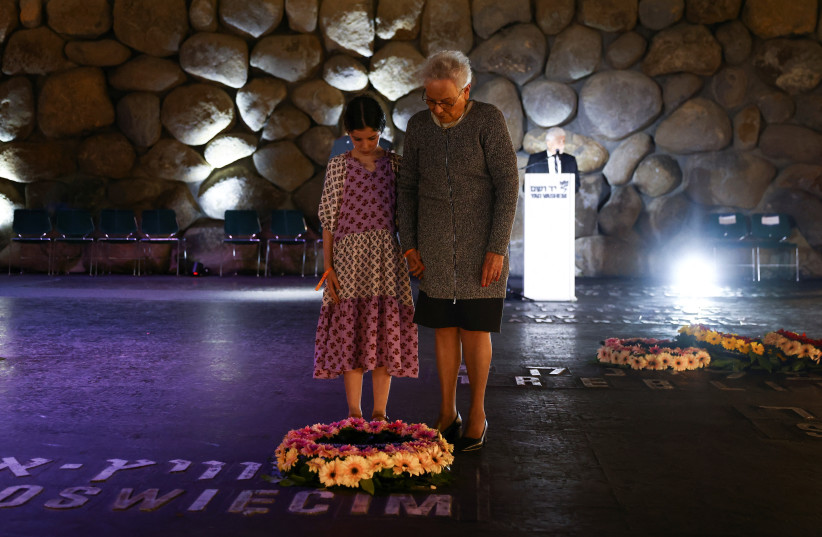As Israel marks Holocaust Remembrance Day, parents are faced with the question of how to talk to their children about the Nazi genocide. Racheli Baratz-Rix, the head of the World Zionist Organization's (WZO) Department of Combating Antisemitism and Enhancing Resilience, has some tips on how to discuss the difficult subject.
Baratz-Rix recommends starting off such a discussion by pointing out that Jews lived good and full lives in Europe before World War II.
Considering that children are constantly exposed to stories about heroism and the battle of good against evil, such as the story of the Maccabees or the Exodus, Baratz-Rix recommends presenting the Holocaust in a similar method.
It is also important to stress that the Holocaust happened in places far away from Israel and that nowadays we are safe in our homeland.
The symbols of Holocaust Remembrance Day can be explained to children in ways that they understand, such as the siren which gives time to "think in your heart" about people who are important to us, and the memorial candles that remind us of sad things that happened to the Jews in Europe and North Africa during the Holocaust.

Focus on positive emotions and lessons
Another lesson that is accessible to young children is that even if we are in a time of crisis or a difficult period, we need to look for the good in things and overcome our fears as best we can.
Baratz-Rix also recommends explaining to young children how to get rid of bad thoughts and focus on positive things like singing, reading books, playing instruments, praying or drawing. It's important to stress that fear is a legitimate emotion, but we have to learn how to handle it so that it doesn't turn into anxiety.
Share memories about a person who is close to you, such as a grandparent who survived the Holocaust, and focus on what you used to do together while also talking about the survivor's story.
Be attentive to what your children are being told and the content they're seeing in school and kindergarten, and stick with that content. Don't speak about concepts like the number six million that young children won't understand.
Use the discussion to teach important values, such as humanity, good people who care for each other, mutual aid and emotional resilience.
End every discussion like this with a focus on something good, such as the heroism of survivors who founded the State of Israel. You can add stories about many good people who live around the world and helped the Jews, the Righteous Among the Nations.
Finally, at the end of the conversation, make sure that you are leaving your children with a feeling of hope.
